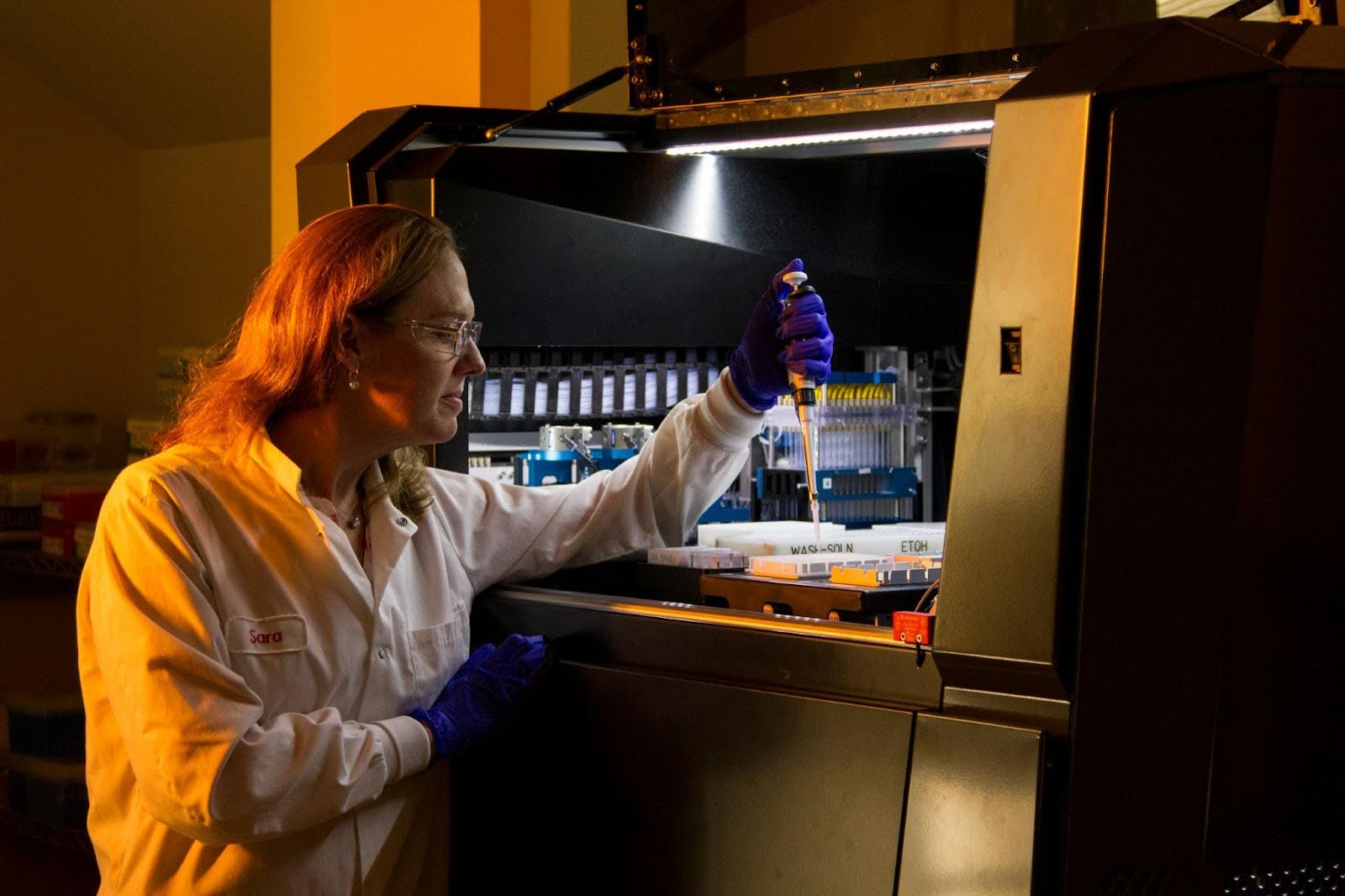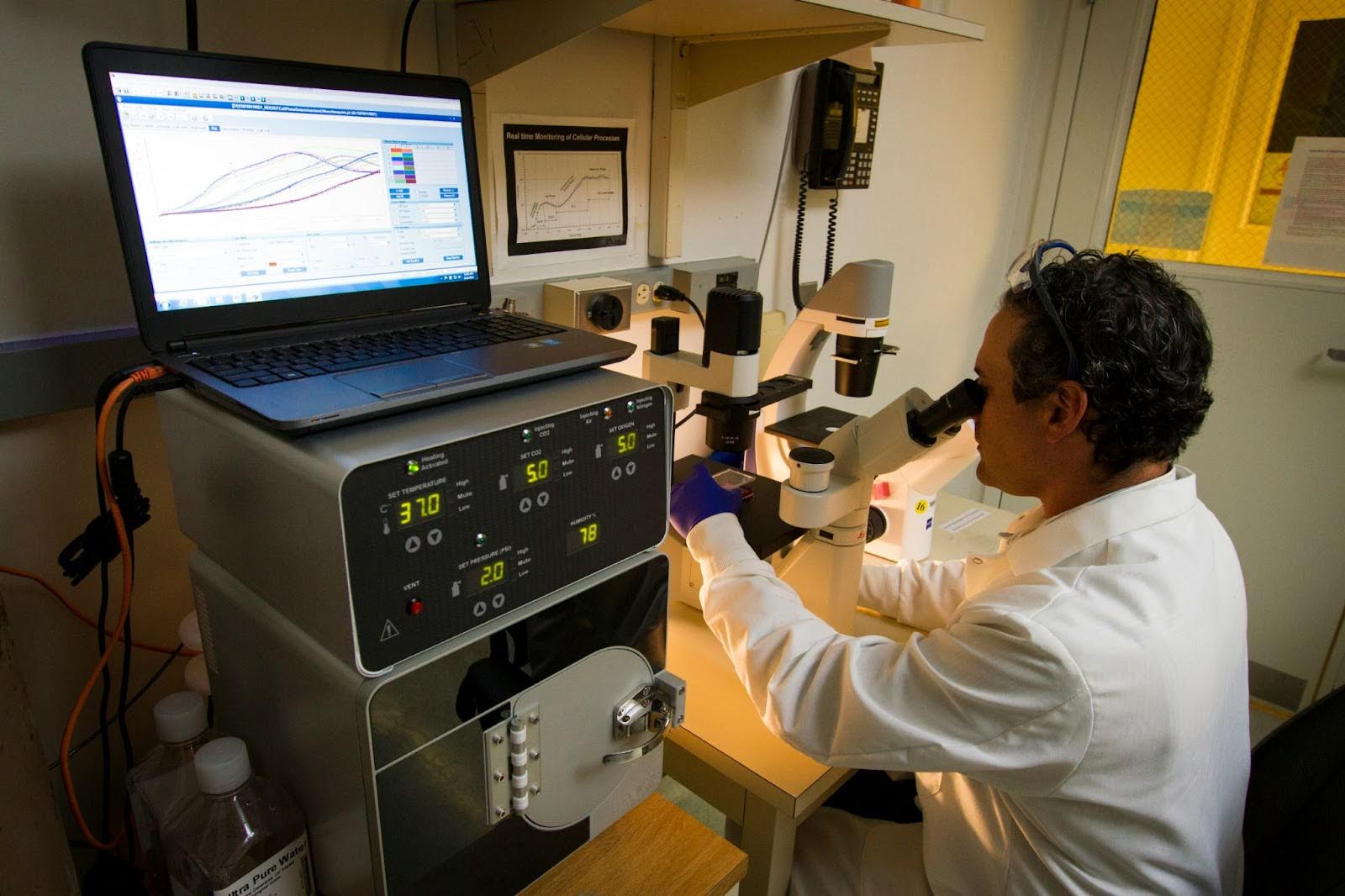Key Takeaways:
- Women are typically advised to start mammograms at age 40, but those with a family history or risk factors may need to begin earlier. Catch helps by quantifying your risk, so you can make more informed decisions.
- Early detection through mammograms significantly improves treatment outcomes and survival rates.
- Due to risk factors, some may need early mammograms at a younger age.
Knowing the right age to begin mammogram screenings can be critical to protecting your long-term health. While guidelines can vary depending on personal and family history, understanding when and why to start can help you make more confident, informed choices.
At Catch, we’re focused on making cancer prevention more innovative and personalized, starting with clear answers to the questions that matter most.
In this piece, we’ll explain why age is critical to knowing when it's time for a mammogram and what factors could tweak the timing of your assessments.
What Age Should You Start Getting Mammograms?
The general recommendation is to start getting mammograms at age 40, since this is when the chance of developing breast cancer starts to increase. But if you have a family history of breast cancer or other risk factors, you might need to start getting mammograms even earlier. It's all about tailoring your health screenings to your personal risk profile.
Why Mammogram Age Matters
You might be wondering why starting at the right age matters so much. The earlier you catch breast cancer, the better your chances are of beating it. Mammograms are incredibly effective at detecting breast cancer early, often before you'd notice any symptoms. This early detection can differentiate between a full recovery and a much more brutal battle.
When breast cancer is detected early and is in what’s called the “localized stage,” the five-year survival rate is 99%. Similarly, if you detect cancer sooner rather than later, you are less likely to endure more intensive treatments that can be difficult to go through.

Variations In Breast Cancer Screening Guidelines
While there are general guidelines for breast cancer screenings, they can vary based on who you are. Some organizations suggest that you start screenings at age 45 or even 50, but the consensus among many experts is that age 40 is a safe bet most of the time. Always chat with your doctor to figure out what's best for you with your unique health history and risk factors in mind.
For example, if you have a family member who has had breast cancer, and especially if you have a harmful change in the BRCA genes (BRCA1 or BRCA2), you will want to get your first breast cancer screening at a younger age than you otherwise would.
Over 60% of women who inherit a harmful change in either BRCA1 or BRCA2 will develop breast cancer in their lifetime. Similarly, because men can also get breast cancer, around 0.2 to 1.2% of men with an inherited harmful change in BRCA1 and 1.8 to 7.1% with an inherited harmful change in BRCA2 will develop breast cancer by age 70.
Who Else Needs To Get A Mammogram Before Age 40?
Let’s say that in your 20s or 30s. In that case, you might think, "Hey, I'm not even 40 yet. Why should I be worried about mammograms?" While the general recommendation is to start at 40, some folks should consider getting screened earlier.
If you've got a family history of breast cancer, like a parent or sibling, you might want to talk to your doctor about starting earlier. We're talking as early as your 20s or 30s, depending on your situation.
And it's not just about family history. If you've had certain types of breast biopsies in the past, or if you've had radiation therapy to your chest when you were younger, you might also be in the "get screened early" camp.
Maybe you feel fine and shouldn’t need to get screened, since you’re not showing any symptoms. But early detection is critical. Catching breast cancer as soon as possible can make a huge difference in your treatment options and your overall outcome. So, even if you feel like a million bucks, it's worth having that conversation with your doctor.
Preparing For Your First Mammogram
What if you’re reading this and realize it’s time to get your first mammogram? Likely, you want to know what to expect. Mammograms can be daunting, but like with other cancer screenings, the benefits far outweigh the risks.
When you arrive at the clinic, you'll be asked to fill out paperwork and change into a gown. The technician will then take you into the exam room, where the mammogram machine awaits. It's a bit like a giant camera, but instead of capturing memories, it's there to take images of your breast tissue.
The technician will position your breast on a flat plate; another plate will come down from above to compress it. This might feel a bit uncomfortable, but getting a clear image is necessary. You'll be asked to hold your breath briefly while the machine does its thing. Then, the process is repeated from a different angle.
How Long Does A Mammogram Take?
A mammogram usually takes about 20 minutes. Once it's over, you can get dressed and go about your day. The images will be sent to a radiologist, who will review them and send the results to your doctor. Once your mammogram results have been reviewed, your provider will contact you if there are any abnormalities.
Remember, it's normal to feel nervous or anxious about your first mammogram, but the technicians are there to help you. And hey, it's a small price to pay for peace of mind regarding your health.
Use Catch To Detect Your Risk And Prevent Cancer
Catch helps you learn your personal risk level for every significant type of cancer (not just breast cancer). If you need an earlier-than-average screening, our risk assessment can help you determine if that’s the case and take the following steps.
We also help people like you who have questions about mammogram age and cancer prevention by providing a screening plan, an action plan, and other vital resources. Your action plan may involve various steps you can take to protect yourself from cancer, like drinking more water or avoiding processed meat.
As new research comes out, you’ll be the first to know as a Catch member. Your risk assessment will also be updated accordingly.
Even better? Catch only costs $5/month, and you can cancel whenever possible.

Final Thoughts
So, when should *you* start getting mammograms? The general consensus is around 40, but as we've discussed, your individual circumstances can shift that timeline. Not everyone who should get a mammogram at a younger age is aware. Make sure that you have these conversations with your healthcare provider so that they can tailor the screening schedule to your specific needs.
Remember, early detection is your best defense against breast cancer. It's not just about following a generic guideline; it's about understanding your body and taking proactive steps. Mammograms might seem daunting, but they're necessary for your health arsenal.
Read also:
- The causes (and dangers) of chronic inflammation
- Catch Guide to Lymphoma
- Why quitting smoking at any time will significantly reduce your cancer risk
Frequently Asked Questions About Mammogram Age
At what age should I start getting mammograms?
It’s recommended that most women start getting mammograms at age 40. This is when the risk of breast cancer starts to increase significantly, and as you now know, early detection is key. Of course, if you have a family history or other risk factors, you might want to start receiving screenings even earlier. Chatting with your doctor about what's best for you is always a good idea.
Why does the age for starting mammograms matter?
The age at which you start getting mammograms is crucial because it can make a big difference in catching breast cancer early. The sooner you catch it, the better your chances of successful treatment. It's like getting a head start in a race because you want to be as far ahead as possible. Regular screening protocols can help you and your doctor monitor any changes over time.
How often should I get a mammogram once I start?
Once you hit age 40, the general rule of thumb is to get a mammogram once per year. Some guidelines might say every two years, but annual screenings give you the best shot at catching anything of concern sooner rather than later.
Does insurance cover mammograms?
Yes! Your health insurance plan should cover mammograms. Like many other services, mammograms are considered essential health benefits in the United States. While mammograms can cost hundreds of dollars without insurance, those who are insured should only need to cover a small co-pay.
Are there any risks associated with getting mammograms?
Mammograms are generally safe, but like any medical procedure, there are some risks. There's a slight chance of getting a false positive, which can lead to unnecessary stress and additional testing to confirm your initial results. In some cases, there's also a possibility of excessive radiation exposure or a false negative.
Still, these instances are rare, and the benefits of getting a mammogram outweigh any possible risks. A cancer screening is a bit like wearing a seatbelt in the sense that, while it might be a bit uncomfortable, it's there to keep you safe.
What should I do if I'm younger than 40 but have concerns?
If you're younger than 40 and have concerns about breast cancer, don't hesitate to talk to your doctor. They might recommend a clinical breast exam or mammogram if you have a strong family history or other risk factors. It's always best to be proactive about your health. Think of it like checking your tires before a long road trip; you want to ensure everything's in good shape before hitting the road.
What happens if I skip a mammogram?
If you skip your mammograms and other recommended screenings, you are at a higher risk of entering a situation where cancer is not detected as soon as possible. If breast cancer isn’t detected at an early stage, it may progress and require more intensive treatment. For example, breast cancer may spread to your lymph nodes and surrounding tissue if you wait.
How quickly does untreated breast cancer progress?
It depends. Multiple factors can play a role in how quickly breast cancer progresses if it is not detected and treated. The type of breast cancer, age at diagnosis, and whether or not you have entered menopause are just a few factors that can play a role in breast cancer progression. For example, younger women and women who have not entered menopause may experience more rapid breast cancer progression due to estrogens in the body. Additionally, people with a type of breast cancer called inflammatory breast cancer will experience more rapid progression.
At what age does a person no longer need mammograms?
Mammogram guidelines stop at age 75, but that does not necessarily mean a person aged 75+ no longer needs them. Doctors often take an individualized approach to recommending mammograms and other screenings at this time.
Sources:
- Breastcancer.org. (n.d.). Mammogram recommendations. Retrieved April 18, 2025, from https://www.breastcancer.org/screening-testing/mammograms/recommendations
- National Breast Cancer Foundation. (n.d.). Early detection of breast cancer. Retrieved April 18, 2025, from https://www.nationalbreastcancer.org/early-detection-of-breast-cancer/
- National Cancer Institute. (n.d.). BRCA mutations: Cancer risk and genetic testing [Fact sheet]. Retrieved April 18, 2025, from https://www.cancer.gov/about-cancer/causes-prevention/genetics/brca-fact-sheet
- Nania, R. (2023, May 9). Are you ever too old for a mammogram? AARP. Retrieved April 18, 2025, from https://www.aarp.org/health/conditions-treatments/too-old-for-mammogram/










.svg)



